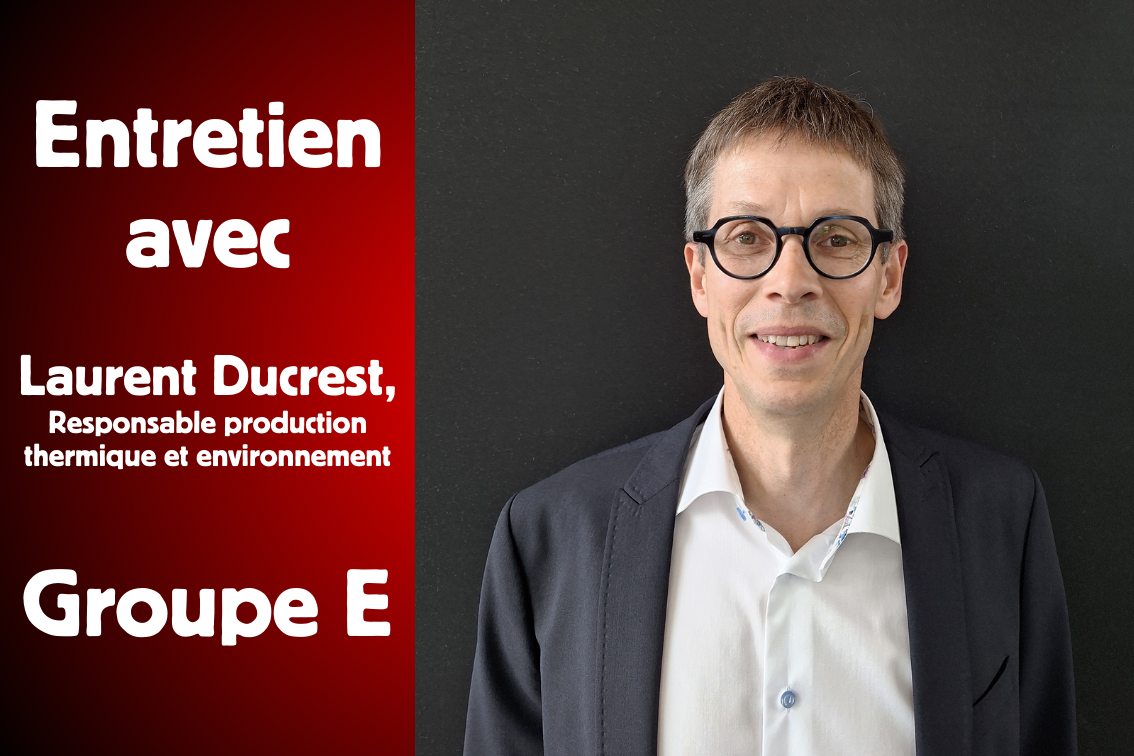On 20 December 2024, to respond to the popular initiative “Electricity for everyone at all times (Stop the blackout)”, the Federal Council unveiled its own counter-proposal. In consultation until 3 April, the text proposes to amend the Nuclear Energy Act to allow new power plants to be approved again in Switzerland.
“The objective is to encourage openness to different technologies in Switzerland’s energy policy, including nuclear energy, and thus to create an insurance in terms of electricity supply in case renewables cannot be developed to the desired extent, there is insufficient progress in seasonal electricity storage, and there are no other climate-friendly solutions to guarantee electricity production,” can be read on the Confederation’s website.
Since the beginning of the year, reactions have been numerous and often opposed. During March, the aim will be to take stock of the different opinions and determine what sector actors think. We continue the series of interviews with Laurent Ducrest, Head of Thermal Production and Environment at Groupe E. Interview
What is your position and opinion on the idea of relaunching the nuclear sector in Switzerland?
Groupe E favors the development of renewable energies, such as hydropower, solar and wind, in accordance with the popular will. However, nuclear energy remains necessary in the short and medium term to guarantee electricity supply, notably as part of the energy transition and the increase in domestic demand.
Our company does not plan to build new nuclear power plants. Their construction is a long and costly process that is not within reach of all companies in the sector. Moreover, their operation would be poorly profitable, their usefulness being mainly limited to the winter period.
The evolution of technologies and long-term energy needs will nevertheless require continuous and pragmatic reflection on the full range of available solutions. In this spirit, Groupe E focuses on the alternatives best suited to the upcoming energy challenges, while remaining attentive to developments in the energy landscape and future political decisions.
SMRs have the advantage of being standardized, which could facilitate authorization procedures, construction, commissioning and staff training.
If this door is reopened in Switzerland, which type of nuclear energy should be favored: new large reactors or small modular reactors of the SMR or AMR type?
It is still too early to determine which type of reactor would be most suitable. Two options are conceivable: a large reactor on an existing site or several small modular reactors (SMRs) distributed across different sites. SMRs have the advantage of being standardized, which could facilitate authorization procedures, construction, commissioning and staff training.
A key factor will also be the length of procedures and the financing of these projects. Given their long-term horizon, involvement of the Confederation, similar to the support provided to reserve power plants, could prove necessary.
Does Switzerland have the technical capacities and a sufficient number of experts to have new ambitions in nuclear power within reasonable timeframes?
No, currently Switzerland has neither the technical capacities nor a sufficient number of experts to develop new nuclear ambitions in the short term. Training specialists in nuclear engineering takes several years, but training programs already exist, enabling a gradual rise in skills.
Nuclear technology suppliers would also provide technical support, and the standardization of small modular reactors could simplify procedures while reducing the need for local experts.
No, currently Switzerland has neither the technical capacities nor a sufficient number of experts to develop new nuclear ambitions in the short term.
If nuclear energy is relaunched, should we not fear a reduction in investments in other renewable energy sources?
This will not necessarily be the case. Resources should be allocated where their impact will be most significant. The different energy sources are complementary, and nuclear does not constitute competition for renewables.
We favor a balanced approach in which hydropower, solar and wind play a central role while integrating other complementary technologies. Our commitment is to maximize the impact of our investments on the energy transition and to contribute actively to a sustainable and resilient energy mix.
Finally, Switzerland has participated in and invested for many years in the European research program on nuclear fusion… An inaccessible myth or a future path in which we should continue to believe and invest?
Nuclear fusion is often seen as a promising energy solution for the future. However, its implementation at industrial scale remains a major challenge due to its technical complexity and the time required for its development.
Switzerland must continue research, but above all invest in the development of renewable energy.
This article has been automatically translated using AI. If you notice any errors, please don't hesitate to contact us.




